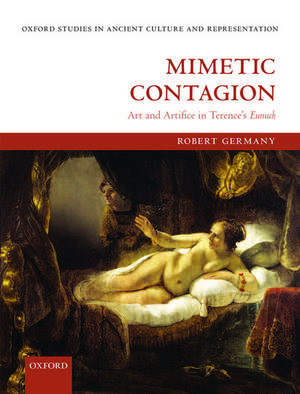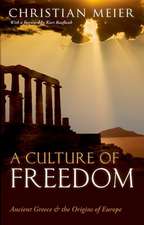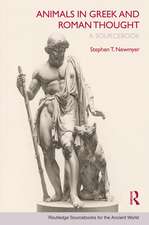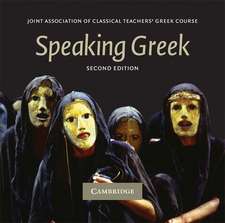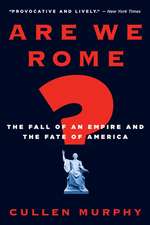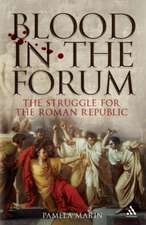Mimetic Contagion: Art and Artifice in Terence's Eunuch: Oxford Studies in Ancient Culture & Representation
Autor Robert Germanyen Limba Engleză Hardback – 27 oct 2016
Din seria Oxford Studies in Ancient Culture & Representation
- 30%
 Preț: 846.52 lei
Preț: 846.52 lei - 25%
 Preț: 707.64 lei
Preț: 707.64 lei - 23%
 Preț: 763.70 lei
Preț: 763.70 lei - 16%
 Preț: 709.21 lei
Preț: 709.21 lei - 34%
 Preț: 1218.39 lei
Preț: 1218.39 lei - 34%
 Preț: 1349.61 lei
Preț: 1349.61 lei - 31%
 Preț: 465.34 lei
Preț: 465.34 lei - 34%
 Preț: 1350.80 lei
Preț: 1350.80 lei - 14%
 Preț: 498.28 lei
Preț: 498.28 lei - 30%
 Preț: 752.17 lei
Preț: 752.17 lei - 34%
 Preț: 1044.05 lei
Preț: 1044.05 lei - 30%
 Preț: 755.27 lei
Preț: 755.27 lei - 30%
 Preț: 768.00 lei
Preț: 768.00 lei - 24%
 Preț: 812.81 lei
Preț: 812.81 lei - 30%
 Preț: 883.14 lei
Preț: 883.14 lei - 30%
 Preț: 1034.13 lei
Preț: 1034.13 lei - 30%
 Preț: 585.20 lei
Preț: 585.20 lei - 30%
 Preț: 811.70 lei
Preț: 811.70 lei - 18%
 Preț: 709.71 lei
Preț: 709.71 lei
Preț: 588.11 lei
Preț vechi: 842.43 lei
-30% Nou
Puncte Express: 882
Preț estimativ în valută:
112.55€ • 122.21$ • 94.54£
112.55€ • 122.21$ • 94.54£
Carte tipărită la comandă
Livrare economică 12-18 aprilie
Preluare comenzi: 021 569.72.76
Specificații
ISBN-13: 9780198738732
ISBN-10: 0198738730
Pagini: 212
Dimensiuni: 198 x 255 x 17 mm
Greutate: 0.6 kg
Editura: OUP OXFORD
Colecția OUP Oxford
Seria Oxford Studies in Ancient Culture & Representation
Locul publicării:Oxford, United Kingdom
ISBN-10: 0198738730
Pagini: 212
Dimensiuni: 198 x 255 x 17 mm
Greutate: 0.6 kg
Editura: OUP OXFORD
Colecția OUP Oxford
Seria Oxford Studies in Ancient Culture & Representation
Locul publicării:Oxford, United Kingdom
Recenzii
This impeccably produced book is unpretentiously erudite; as the saying goes, much more than the sum of its (very many, ancient and modern) parts, impressively documented and arranged: literary-philological analysis and performance criticism, art-historical and anthropological inquiry, sociocultural and intellectual history. Germany regularly deploys critical theory pedagogically judiciously, painlessly introducing uninitiated readers to Benjamin, Foucault, Frazer, Gell, and Irigaray, to name some. Ultimately, Germany's sophisticated and dense analysis, masterfully delivered in clear, serene prose is a pleasure to read. All along, the book is very polemical-indeed fundamentally polemical-though about as honestly and pertinently as polemics can be. ... This book, a giant step forward in Terentian scholarship, is in every respect his worthy legacy
Notă biografică
The late Robert Germany studied Classics at the University of Texas, the University of Basel, and the University of Chicago. He previously taught at Trinity University and was Associate Professor of Classics at Haverford College. He worked primarily on Greek New and Roman comedy and Republican culture and was writing a monograph on the Unity of Time in ancient and early modern theatre.
